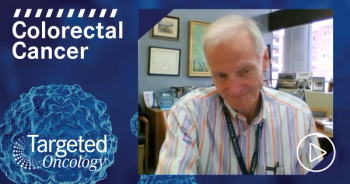
Charles Fuchs, MD: Impeding RAS Mutation Testing
What are some issues that impede widespread adoption of recommended testing for RAS mutations?
The problem that goes on in the U.S. is the access to all RAS testing. A lot of hospitals and pathology laboratories may have access to technology that allows them to do just EXON 2 or CODONs 12 or 13 of KRAS, but might not be equipped to do all RAS testing. As a result, many centers have to do send-outs to commercial laboratories to get all RAS testing. I think that's the limiting step.
The other consideration is that it doesn't necessarily come back quickly. The result can take 2 weeks or long in certain circumstances to get all RAS sequence data from a laboratory. Many patients don't want to wait that long to start systemic therapy for metastatic colorectal cancer. As I mentioned, if you're having trouble getting back the result on RAS testing, it's perfectly reason to use your first line regimen of chemotherapy plus bevacizumab, and then once you get the RAS testing data, put that into your paradigm so that you might give an EGFR receptor in a second or third line for a RAS wild type patient.
Unresectable Colon Cancer: Case 2
52-year-old woman newly diagnosed with metastatic CRC and is genotyped as part of her initial work up.



















